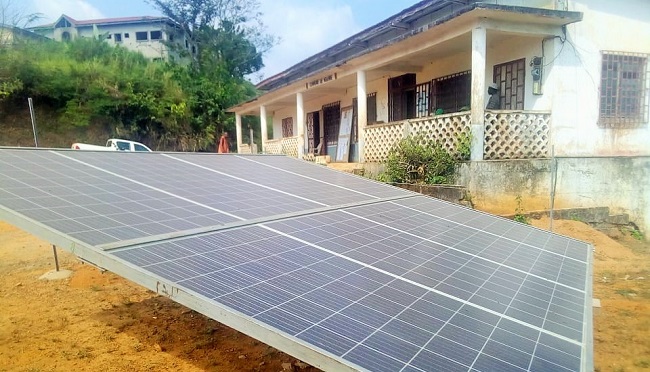Despite the growth of renewables in some sectors and in some countries, the world is not on track to avert climate breakdown, the REN21 Renewables 2020 Global Status Report (GSR) launched on Tuesday, June 16, 2020 seem to emphasise.

Cutting emissions by half by 2030 and curbing pollution to keep warming below 1.5°C requires rapidly switching to renewables, alongside efforts to strengthen energy efficiency in all sectors.
The report confirms that while switching to renewables has increased in a few countries (mainly in the electricity sector), overall sectoral transformation remains dismal. Renewables in the electricity sector have grown significantly in recent years, primarily in relation to wind and solar and currently amounts to around 27% of total energy use.
The power sector consumes only a small proportion of total energy use, at around 18%. Only 3% of global transport is powered by renewables despite the sector consuming 32% of total energy. Similarly, the cooling and heating sectors are still primarily powered by fossil fuels.
According to the International Energy Agency, the COVID-19 pandemic and associated lockdown of activities have resulted in an estimated 8% reduction in carbon emissions this year. To sustain this rate of decline beyond the pandemic and avert destructive warming, we need to radically shift energy systems in all sectors to renewables and improve energy efficiency. The economic recovery and stimulus packages by governments to offset the impact of the current economic crisis should reflect this shift.
The report confirms that the social and economic advantages of shifting to renewables must form the bedrock of policies in a post COVID-19 world.
Tasneem Essop, Executive Director, Climate Action Network (CAN) International, said: “Yet again, the REN21 assessment of the status of renewables tells us that governments are not listening to the science and acting on what is needed to address climate change by cutting emissions, transforming economies and providing clean air, jobs and healthy living for their citizens. While people struggle to deal with the impacts of multiple crises such as the COVID-19 pandemic, inequality and climate change, governments are busy developing and implementing economic stimulus packages and industry bailouts that will lock-in deadly fossil fuel economies for decades to come.
“This year’s REN21 assessment should be a wakeup call and should galvanise government action across the world. They can do this immediately through using their economic stimulus packages to invest in renewables instead of fossil fuels.”
Stephan Singer, Senior Advisor Global Climate Science and Energy Policies, CAN International, said: “While renewables are growing, their increase is much too slow worldwide. To address climate change effectively, annual investments have to triple in this decade and energy efficiency improvements have to double each year in all economic sectors.”
Wendel Trio, Director of CAN Europe, said: “Governments need to support the European Green Deal and ensure the recovery out of the current crisis increases investments in renewable energy with the aim of making the European energy system 100% renewable. For this to happen, we need to remove all barriers to energy savings measures and further renewables deployment, and we must do that at an incredibly speedy pace.
“Starting from now, we can and should increase roughly three-fold the contribution of renewable energy sources by 2040. Reaching the Paris Agreement’s objectives without an unprecedented growth of renewables will be exceedingly difficult.”
Jean Su, Director of the Centre for Biological Diversity’s Energy Justice Program and Co-Chair of CAN International’s Energy Group, said: “It’s a failing to our planet if we miss this unprecedented opportunity to tackle the climate, racism, and COVID pandemics plaguing the world at once. The mass deployment of clean and renewable energy is vital to ensuring an enduring future and ending the fossil fuel era that has put profit over people and the planet for too long.”
